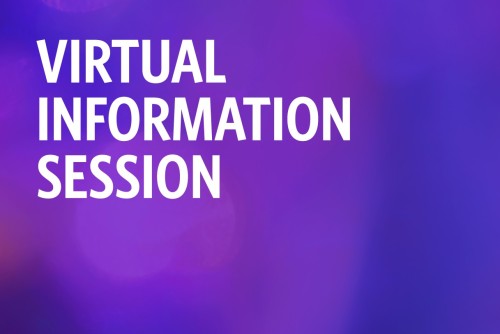Postbaccalaureate Licensure in Leadership
Stonehill's Postbaccalaureate Licensure in Leadership prepares educators who already hold a master's degree to equitably lead teams, departments, schools and districts. It leads to a Massachusetts supervisor/director license.
This program is offered fully online.
Upcoming Application Deadlines
- Summer Semester: May 1, 2026
- Fall Semester: August 1, 2026
- Spring Semester: January 1, 2027
Earn Your Supervisor/Director License
Stonehill’s Postbaccalaureate Licensure in Leadership program prepares students to pursue an administrator's initial license by equipping them to be knowledgeable, reflective, caring and flexible supervisors and directors who embrace learning, scholarship, community and advocacy in their work.
In this program, students will:
- develop inclusive leadership skills and learn how to effectively engage diverse stakeholders – preparing them to foster equity, representation and systemic reform
- analyze and use data to drive informed, equity-focused decisions and implement impactful, evidence-based strategies
- develop their understanding of the legal and ethical dimensions of education with a focus on equitable resource distribution
Why Graduate Teacher Education at Stonehill
- Focus on educational equity and diversity helps better prepare educators for the modern classroom
- A core of foundational courses ensures our graduates gain the skills to teach all students
- Faculty with well-established expertise in field
- Experiential learning via research, partnership and community opportunities
- Specialized student support framework guides students through program requirements and career preparation
Upcoming Graduate & Professional Studies Events
-
Virtual Information Sessions
Join us for a virtual information session or drop-in session to learn more about our master’s degree and certificate programs.
-
Educator Licensure Information Sessions
Attend an Educator Licensure Information Session and get clear guidance on how to become a licensed educator. Whether you're exploring your options or have started the process, this session breaks down everything you need to know, including traditional and alternative pathways.
-
Graduate & Professional Studies Open House
Register for our Graduate & Professional Studies Open House on March 21! This event will provide a high-level introduction to our graduate degree and certificate programs.
-
Teacherpalooza: A Teacher Appreciation Event
Join us Wednesday, June 17, 2026, for Teacherpalooza, a teacher appreciation event hosted by Stonehill Graduate Teacher Education to thank educators for their hard work.
Curriculum Keeps Inclusivity at the Center
Our graduate study in educational leadership focuses on how school leaders can equitably lead teams, departments, schools and districts. The 18-to-24 credit Postbaccalaureate Licensure in Leadership program features a selection of courses designed to prepare educators for a Massachusetts supervisor/director license.
Our curriculum includes a selection of specialized courses focused on specific leadership content, including ethics, law, instructional leadership, and engagement with families and communities, and a supervised practicum.
This course introduces school leadership through the lens of equity, diversity, justice and belonging. The legal, ethical, social, and political landscape, including education reform related to PreK-22 and higher education in the U.S. will be the main focus of this course. Participants will explore education policy development, analysis, and change in schools and education organizations. The course will explore leadership frameworks and analytic methods to support course participants to design, implement, and evaluate policies at the school, community, and state level. The history of education reform in Massachusetts, as well as related federal, state and case law statutes, will be explored. Students will interrogate power structures within educational organizations, identify structural barriers, and consider how policy plays a role in both advancing and deterring educational progress.
This course focuses on preparing future leaders of schools to create inclusive cultures within schools. In this course, leaders will explore how to evaluate learning environments, with a specific focus on interrogating structural barriers within learning environments. Strategies for ensuring the environments are student-centered and inclusive of all students will be explored. Leaders will also explore how to ensure student assessment data is utilized to determine student learning, overall trends, and how to evaluate assessment data for bias and inequities. This course will also examine strategies for supporting and providing equity-focused feedback to staff.
This course will expose educational leaders to strategies for engaging with diverse stakeholders, including families, communities, and staff. Leaders will discuss how to build trusting and productive relationships with different groups of stakeholders, including how to break down structural barriers that may prevent or limit engagement from minoritized groups. Leaders will also explore methods to develop strategic relationships with the community, including organizations and businesses. Strategies for addressing concerns from diverse stakeholders in an equitable manner will be highlighted.
This course prepares school leaders to make decisions that are data-based, and equity focused. Utilizing multiple sources of evidence with inclusivity as a lens, leaders will analyze issues and challenges and highlight inequities, in order to make decisions that improve all students’ learning and experiences within schools. Data from the school, state, and federal level will be examined, with a focus on equity. Leaders will participate in inquiry-based practices to evaluate current practices within schools and will make changes utilize these data. The development of strategic and equity-orientated action plans and goals will be discussed, including how to measure the achievement of plans and goals and impact on student success.
This course will highlight financial principles and budget management in schools. Economic and demographic data will be analyzed, using a lens of inclusivity, to determine how and why financial decisions are made within schools. Leader candidates will review local, state, and federal education budgets and will evaluate equitable management of resources and ways to ensure budgets are informed by input by diverse stakeholders, including community members, families, and staff. Strategies for recruitment, hiring, and retention of diverse staff will be discussed, as well as HR policies and procedures that contribute to an anti-oppressive and inclusive culture.
Capstone experience integrating the coursework of the Equitable Leadership Masters’ Program into a clinical experience. Students spend a minimum of 300 hours in a supervisor/director role. They work with qualified practitioners in partner school districts to gain teaching experience while assuming gradual responsibility of supervisor/director role. A weekly seminar accompanies the clinical field experience.
Graduate clinical licensure additional practicum, based on previous experience/consultation with advisor. Candidates spend an additional semester in supervisor/director placement to gain experience while assuming gradual responsibility of the supervisor/director role.
*This course is only required for those that need the time to complete hours. No seminar component.
Studying Education at Stonehill
Stonehill College's graduate teacher education programs prepare educators to lead inclusive learning environments. The College offers master's degree, teacher licensure, community education and graduate certificate program options.
Schools today must strive to be inclusive environments, and educators in our program are prepared to be leaders in creating equitable spaces where difference is valued.
Graduate Teacher Education at Stonehill
Stonehill College's graduate teacher education programs aim to prepare knowledgeable, reflective, caring and flexible educators who embrace learning, scholarship, community and advocacy in their work. Social justice and democratic education are at the center of our work and underpins all programs, courses and experiences. We believe education can disrupt systems and processes that perpetuate injustice and inequity and embrace diversity and individuality as strengths.
We advance our mission by modeling the creation of democratic spaces in the graduate classroom that reflect equitable, accessible and inclusive learning environments where students' voices and perspectives help to shape the construction and the provision of their learning.
Three tenets guide our program philosophy:
- Social justice education
- Democratic education
- Anti-oppressive education
Graduate Teacher Education Program Outcomes
Our graduates
- Foster care, connection and community with students, colleagues and families
- Promote inclusivity, diversity and equity in educational spaces
- Work to disrupt systems that perpetuate oppression and inequity
- Embrace teaching practices that foster social justice and democracy
- Lead by making education accessible for all learners
- Elevate student voices and perspectives in education
- Act purposefully to continue to learn and contribute to the profession
Rigorous Academics and the Support to Succeed
Stonehill’s graduate teacher education programs recognize the challenges graduate students face in prioritizing work, family, personal and graduate school commitments. Our Graduate Student Support, Access and Success (SSAS) Framework is designed to support students’ success from program start to finish.
Specifically, this approach provides:
- A proactive vs. reactive framework for supporting graduate students’ variable needs within their program
- Clear benchmarks for assessment of candidate readiness
From the admission process to graduation, students have a clear understanding of both expectations and the support available to help them achieve their goals.
Contact Information
Graduate & Professional Studies Admission assists students as they explore graduate and professional opportunities offered at Stonehill College.
Meet the Director of Graduate Teacher Education





